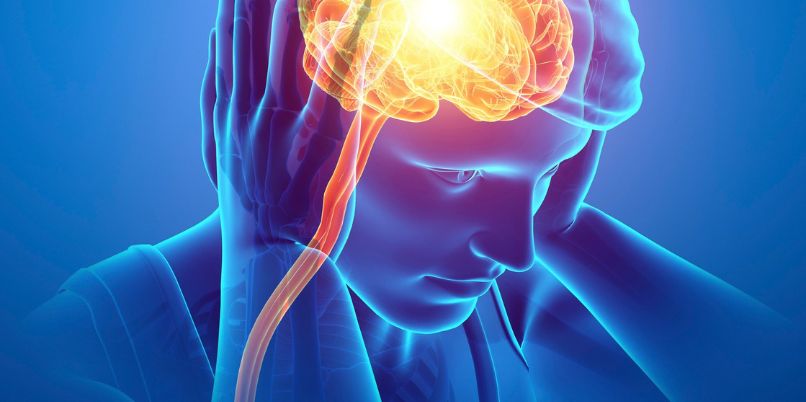What is Baclofen?
Baclofen is a prescription medication that’s primarily used to treat muscle spasms and conditions involving muscle stiffness. Baclofen is part of a group of drugs called muscle relaxants, and it can also be used for treating muscle tightness and spasticity caused by neurological conditions.
But Baclofen isn't just used for muscle issues recently; it’s gained attention for its potential role in addiction treatment. Studies suggest it could help reduce cravings and withdrawal symptoms for those struggling with alcoholism and opioid dependence.
How Does Baclofen Work?
It works by affecting the brain specifically, it activates a receptor in the brain called GABA-B, which helps calm down the overactivity in the nervous system. This can help reduce stress and anxiety, which are often triggers for substance abuse.
Baclofen has anxiety-reducing effects, making it useful in treating alcohol cravings and opioid dependence. Overall, Baclofen helps to relax muscles and ease pain while also potentially benefiting those in addiction recovery.
How Does Baclofen Help in Addiction Treatment?

Baclofen is gaining attention for its potential role in treating alcoholism and opioid dependence.
Here’s how it helps in addiction recovery:
- Reduces Alcohol Cravings:By calming the nervous system and reducing anxiety, which often triggers alcohol consumption. Studies suggest it can help prevent relapse by decreasing the desire to drink.
- Treatment for Opioid Dependence:By working on the GABA receptors, it helps reduce the stress and anxiety associated with opioid withdrawal, making the recovery process smoother.
- Neurological Impact: It’s beneficial for those dealing with both substance use disorders and conditions like chronic pain or muscle spasms, which often co-occur in addiction cases.
- Prevention of Relapse:It is a part of a comprehensive addiction treatment plan to help individuals maintain long-term sobriety. It’s especially helpful for those who have struggled with cravings and emotional triggers in the past.
Is Baclofen Addictive?
No, while Baclofen is generally not considered addictive when used as prescribed. However, misuse or taking it in higher doses can lead to physical dependence.
While it doesn’t produce the intense euphoria of other substances, abruptly stopping baclofen after long-term use can cause withdrawal symptoms like anxiety, insomnia, and muscle pain.
To avoid dependence, it’s important to follow prescribed dosages and never stop taking it suddenly without medical supervision.
What are the Potential Side Effects?

While Baclofen is effective for treating conditions like muscle spasms and spasticity, it can cause side effects in some people.
Some of the Common Side Effects are:
- Drowsiness
- Fatigue
- Dizziness or lightheadedness
- Weakness
- Muscle fatigue
- Nausea
- Upset stomach
- Headaches
Long Term Side Effects:
- Confusion or memory problems
- Low blood pressure or slow heart rate
- Respiratory issues, especially if combined with other medications
- Severe muscle weakness
- Severe fatigue or lethargy
What is Baclofen's Half-Life?
The Baclofen half-life is approximately 5-6 hours. This means that it takes around 5 to 6 hours for the concentration of the drug in your body to reduce by half.
It typically takes about 5 half-lives for a drug to be completely eliminated from the system. For Baclofen, this would be around 24-30 hours after the last dose, although this can vary depending on factors like your age, kidney function, and overall health.
Because of its relatively short half-life, Baclofen is usually taken multiple times per day, ensuring its therapeutic effects are maintained throughout the day.
- Managing the side effects of Baclofen is crucial to ensure its effectiveness while minimizing discomfort.
- If you experience drowsiness, try taking Baclofen before bed, and if dizziness occurs, rise slowly and stay hydrated.
- For muscle weakness, avoid overexertion and consult a physical therapist if necessary.
- Nausea can be managed by taking Baclofen with food, and headaches can be alleviated by staying hydrated and using pain relievers.
- If you notice swelling, elevate your feet or use compression stockings.
- For mood changes, track any shifts and discuss them with your doctor.
- Always follow your doctor’s instructions when discontinuing Baclofen to avoid withdrawal symptoms.
- Adjustments to dosage or timing can often make a significant difference in managing side effects.
What Happens During Baclofen Withdrawal?

When you stop taking Baclofen suddenly or reduce the dosage too quickly, your body may go through withdrawal.
Here’s what to expect during Baclofen withdrawal:
Physical Symptoms:
- Muscle spasms or increased muscle stiffness
- Increased pain (especially if Baclofen was used for nerve pain or spasticity)
- Sweating or feeling feverish
- Nausea or vomiting
- Dizziness or lightheadedness
Psychological Symptoms:
- Anxiety or restlessness
- Mood swings or irritability
- Depression or feelings of hopelessness
- Mood swings or irritability
Severe Symptoms :
- Seizures: Baclofen withdrawal can sometimes trigger seizures, particularly if the medication was used for a long period.
- Hallucinations: Some individuals may experience confusion or vivid hallucinations when coming off Baclofen too quickly.
How to Manage Baclofen Withdrawal?

Managing Baclofen withdrawal safely is crucial to minimizing discomfort and preventing complications. Here are some steps you can take:
- Consult Your Doctor: Always speak with a healthcare provider before stopping Baclofen. They can guide you on a gradual tapering schedule to avoid severe withdrawal symptoms.
- Gradual Dose Reduction: Baclofen should be reduced slowly over time. A doctor will recommend a tapering plan to lower the dose gradually, minimizing withdrawal symptoms like anxiety, muscle spasms, or dizziness.
- Stay Hydrated and Rest: Hydration and adequate rest are essential for managing the physical discomfort during withdrawal. Drink plenty of water and get enough sleep to help your body adjust.
- Monitor Symptoms: Keep track of any withdrawal symptoms, such as muscle spasms, headaches, or mood swings. This information will help your doctor adjust your tapering schedule if necessary.
- Seek Support: Therapy or support groups can be helpful for managing psychological symptoms like anxiety, irritability, or depression. Consider professional counseling during the withdrawal process.
- Medical Supervision: If withdrawal symptoms become severe, especially if seizures or hallucinations occur, seek immediate medical attention. Your doctor may recommend additional treatment or monitoring.
- Lifestyle Adjustments: Incorporating a healthy diet, regular exercise, and stress management techniques can support your overall recovery during the withdrawal process.



